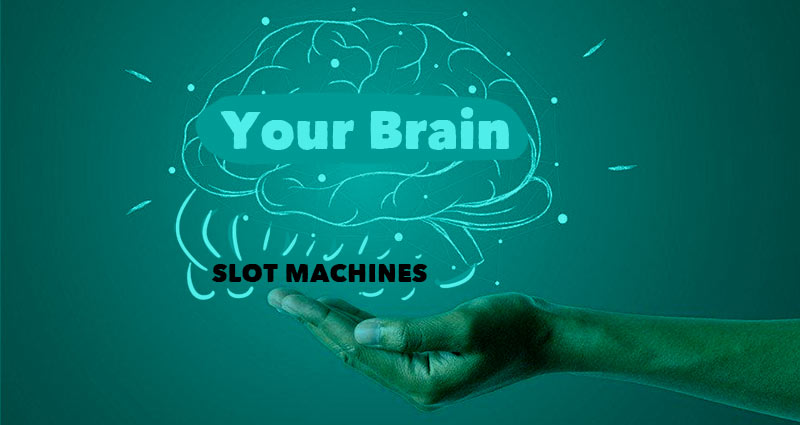The Psychology of Slot Machines

When you think of a casino your mind probably conjures images of tense poker games, spinning roulette wheels and bustling blackjack tables. In terms of revenues and popularity all three of these classic casino games pale in significance to the shiny, whizzing slot machines that dominate the floor space.
In fact, research shows that slot machines were responsible for the greatest percentage of revenues in America’s gambling capital Las Vegas. Studies also found that the city’s 39,680 machines earn on average $79,962 a year.
The reasons behind the success of slot machines lies in our brains, deep within our psyche which we will explore in this article. Read on to find out the psychology behind our collective attraction to slot machines.
Cognitive Dissonance – The Psychological Phenomenon That Helps Us Gamble
According to World Health Organization figures, there are an estimated 1 billion smokers on the planet and statistically, half of them will die as result of their habit. Despite all of the numerous resources, these smokers continue to puff away on cigarettes in full knowledge that it is shortening their life expectancy.
What allows smokers to do this is a psychological phenomenon called cognitive dissonance whereby they disassociate from the well-known evidence that their smoking is killing them. This cognitive dissonance allows them to happily smoke without suffering a panic attack or intense waves of fear every time they light up.
Similarly, slot machines provoke cognitive dissonance amongst players. Every licensed slot machine in a land-based casino or online has a Return to Player (RTP) percentage that players can easily access.
This tells players on average, how much money they can expect to lose from every $100 spent wagering. Despite this figure proving to players that they will lose more than they win on average, people continue playing.
In much the same way that the nicotine rush of a cigarette makes the risks seem worth it, the chances of a big win help gamblers forget that they will on average, lose more than they will win.

Dopamine – The Brains Reward System
Whenever we do something that our primitive brain finds to be good or beneficial, such as eating, procreating and exercising a neurotransmitter called Dopamine is released in our brains. This chemical messenger is synonymous with pleasure and when it is released, we can often feel a sense of euphoria.
Video gaming and in particular slot machines have been designed to deliver great highs and waves of euphoria to players. Because money is at stake, the risks to the individual are high so when a win occurs a huge amount of Dopamine is released into the players brain.
Every time this happens the brain begins to further associate slot machines with these intense feelings of pleasure. This is often why people continue to play and play slot machines even when they are losing, because they are constantly in search of that Dopamine rush that a win will trigger.
Unlike most other gambling games, slot machines have been designed to consistently offer small rewards to players to keep them engaged and coming back. Whilst your chances of winning the jackpot might be miniscule, you are never far away from winning free spins or bonuses.
These features have been specifically designed to activate that reward system inside your brain as when you begin to associate slots with pleasure, you will be more likely to continue playing.
Interactive Controls – Increasing Control
Humans love certainty in life, it is the reason that for millennia we have searched for the answers to all of life’s big questions. Unfortunately, much of life is uncertain and as a result we seek out certainty in as many areas of our lives as possible.
Slot machines play into this human desire to gain greater control despite the slots themselves being inherently uncertain. Psychologists have found that buttons, even on the simplest items help people to feel in control, especially when the pushing of them triggers a pre-programmed, visually appealing outcome.
Every time you push down on the ‘spin’ button on a physical slot machine or an online slot, you are taking control in a way that your brain views as positive. Each time you press the button, the visual whirlwind of colours and shapes in front of your eyes release Dopamine in your brain.
No matter how many times you push the button, the same thing will happen, the reels on the slot will spin. This simple yet effective feedback loop boosts feelings of control amongst players which encourages them to ignore the uncertainty of winning or losing and play on for longer.

Visual & Audio Cues – Making Memories
You may have won small amounts of money from a scratchard or a lottery ticket before, but unless it was a significant amount, you are unlikely to vividly remember it. That’s because the process of buying a scratchard or lottery ticket and collecting your winnings are relatively boring.
However, if you were to win the same amount of money playing a slot machine the memory would be much more prominent in your mind. That’s because of the audio and visual cues that these games use to engage you. Online slot providers like Wink Slots offer players various themed games that all have a distinct theme tune and brightly colored graphics, making the games a lot more attractive than an average casino game like roulette.
Wins on a slot machine game are often followed by the sound of coins dropping from a height, flashing dollar signs on the screen and an array of flashing lights on the slot terminal. This makes a win on a slot a full-body experience that is not only intensely pleasurable and rewarding, but memorable too.
When these wins become etched on your brain, your Dopamine reward system is more likely to be activated whenever you think of slot machines. This helps to keep even the most casual of gamblers interested in slots for a long time, potentially even years after spinning the reels.
Summing Up
Slot machines aren’t a trick, nor have they been designed to deceive you and appeal to your primitive brain. Rather they are enjoyable distractions designed part by intention and part by accident to engage you for as long as possible.
There is an awful lot that can be learned about the human brain and psyche from slot machines, perhaps much more than we already know…
































































































